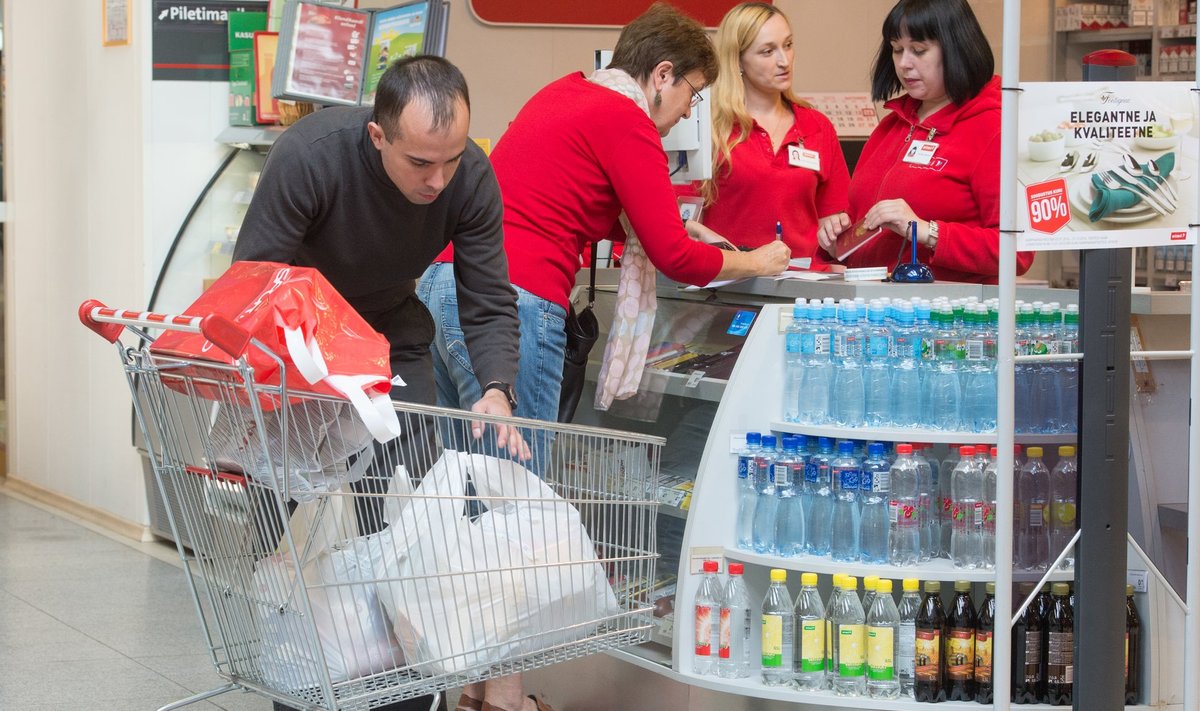Sanctions? What sanctions? Russians are shopping for food in Narva

The decision by Russia to ban the import of many Western foods in retaliation for sanctions over Ukraine in August has sent the grocery prices in the country soaring and greatly worsened inflation. Eesti Päevaleht reports that the Estonian border town Narva is experiencing a massive influx of daily shoppers from Russia, who are after cheaper food.
"Look, they are reporting about hungry Russians again," a local resident joked when Eesti Päevaleht’s journalists approached a supermarket in Narva.
Jokes aside, things have gone sour for many people on the other side of the border. Over the weekend, the four large supermarkets in Narva are full of queues. Tax-free shopping is not anymore the main reason for Russians to travel here. People come for foods that they can now only dream about in Russia. And it is cheaper.
The bags are full of cheese, sausages, sour cream. The Russian embargo on imported Western foods applies for large quantities, not for personal shopping. However, the Russians who have taken a trip to Narva, are not eager to admit that they are here for basic commodities, and tried to put on a brave face when questioned by Eesti Päevaleht.
"What sanctions? Our shops are full!"
"Well, the prices have increased for many foods. Lemons and meat, for example – but these were always more expensive in Russia than Estonia," Andrei and Ljudmilana, the middle-aged couple from St. Petersburg, said. For them, the shopping trips to Estonia have become a routine for many years.
"What sanctions, we manage very well!" was an angry response from another shopper, a Russian lady. "We have all we need. The Finns will soon build their factories in Russia and everything will be fine!"
Most Russian shoppers, however, have a friendly attitude towards Estonia, but few dare to get their picture taken for the paper. It is natural to take care of one’s family, but the anti-Western ideology in Russia has made many people aware not to admit the difficulties in public.
Andrei Kopezin, the director of large supermarket Narva Prisma, admitted that privately, the Russians are more open about their real situation back home.
"Apparently, the prices in St. Petersburg have increased, and yet there’s lack of foods," he said.
Urmas Aas, an inspector from the Estonian Tax and Customs Board, confirmed that the amount of foods taken across the border to Russia has increased.
"Many Russians, shopping in Narva, buy food worth 300-400EUR. Some take even enough to last for a week," Aas said.
Other people working in the Narva grocery industry commented that some Russian shopping trolleys have been worth over 2,000EUR. Everything goes – from Estonian organic food and delicacies, to household and beauty products, to cognac, whisky, and wine. Coffee, chocolate, and cheese are also prized goods for newly deprived Russians.
From St. Petersburg, the journey to Narva takes an hour and a half and 15 companies are organising special trips. But the Russians in the neighbouring town Ivangorod, across the border from Narva, have got an advantage - inhabitants have formed groups and take turns to shop in Estonia for many families at once.